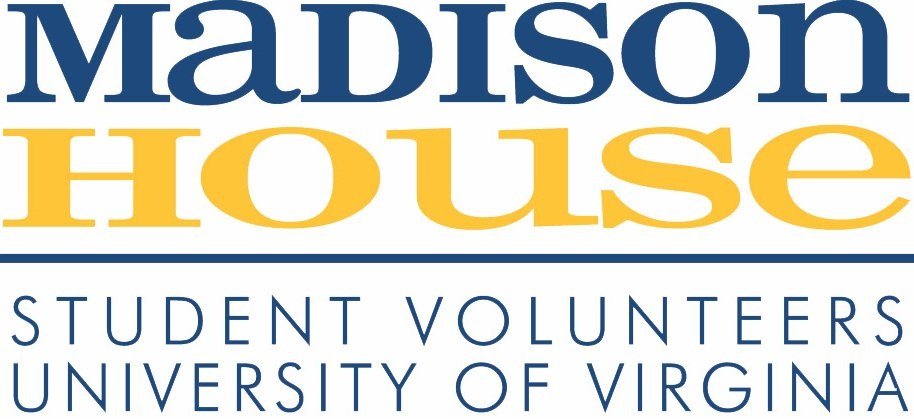In an era where college students are increasingly focused on academic achievement and career prospects, volunteering with a non-profit organization like Madison House that places students in community service roles offers a unique and invaluable opportunity. This experience goes far beyond simply fulfilling a requirement or padding a resume; it is a transformative journey that builds essential skills, fosters leadership, creates lasting relationships, and encourages ethical engagement with the community.
Kathryn Ellis, Board of Directors co-chair 2023-2024 and Adopt-a-Grandparent volunteer
Service through Madison House offers many benefits to the community and the students who volunteer. It all begins with understanding the community’s priorities. By actively listening and learning from local residents and organizations, Madison House volunteers offer meaningful support to the community they live in during the school year. Our volunteers work collaboratively with the community, valuing local knowledge and ensuring that initiatives are fully aligned with those of our community partners.
Many Madison House volunteers describe their service experience as a highlight of their college career. “Madison House has been at the core of my undergraduate experience, allowing me to connect with the greater Charlottesville community and make an impact during my four years at UVA,” says Kathryn Ellis, Board of Directors co-chair and Adopt-a-Grandparent volunteer. “I have found community at my program's site, as well as with the amazing people drawn together by shared passion for Madison House and our mission.”
While there are numerous benefits to serving as Madison House volunteer, here are 15 benefits our volunteers cite most frequently:
1. Positive Impact in the Community
Madison House volunteers directly contribute to meaningful initiatives, from educational programs to environmental conservation efforts. This hands-on involvement creates tangible improvements in the community and empowers students to be agents of change.
2. Sustainable Impact
Focusing on sustainability ensures that the positive changes made through volunteering endure long after the students have left. This involves building local capacity, empowering community members, and designing projects with long-term benefits in mind.
Building Essential Skills
3. Practical Application of Classroom Knowledge
Volunteering allows students to apply theoretical knowledge gained in the classroom to real-world situations. Whether it's an environmental science major working in a community garden or a business student helping residents file tax returns, these experiences cement learning and enhance understanding.
4. Communication and Interpersonal Skills
Working with diverse groups in various community settings hones communication and interpersonal skills. Students learn to convey ideas clearly, listen actively, and engage empathetically—skills that are critical in any professional field.
5. Problem-Solving and Critical Thinking
Community service often involves navigating complex, unpredictable situations. This challenges students to think on their feet, develop creative solutions, and adapt to changing circumstances, thereby sharpening their problem-solving and critical thinking abilities.
Leadership Development
6. Responsibility and Accountability
Volunteering places students in positions of responsibility, where their actions directly impact others. This sense of accountability fosters maturity and a deeper understanding of the importance of dependability and ethical behavior.
7. Initiative and Innovation
Non-profits often operate with limited resources, encouraging volunteers to be resourceful and innovative. Students learn to take initiative and help solve problems, cultivating a proactive and entrepreneurial mindset.
8. Teamwork and Collaboration
Successful community service relies on teamwork. Volunteers must collaborate with other students, staff, and community members, learning to lead projects, delegate tasks, and work towards a common goal.
Building Relationships
9. Community Engagement
Students become more integrated into the local community, understanding its needs and dynamics. This engagement builds a sense of belonging and a deeper appreciation for the community’s unique challenges and strengths.
10. Cultural Competency
Interacting with diverse populations enhances cultural awareness and sensitivity. Students learn to appreciate different perspectives and experiences, fostering a more inclusive worldview.
11. Networking Opportunities
Volunteering opens doors to meet professionals, mentors, and like-minded peers. These connections can lead to future job opportunities, collaborations, and lifelong friendships.
Personal Benefits
12. Personal Fulfillment
Knowing that their efforts make a difference provides a profound sense of fulfillment and purpose. This intrinsic reward reinforces the value of altruism and can inspire a lifelong commitment to service.
13. Career Exploration
Community service provides a hands-on preview of potential career paths. Students can explore different fields, identify their passions, and make informed decisions about their future professions. While not the primary motivation, the skills and experiences gained through volunteering are highly attractive to employers. They demonstrate a candidate’s commitment, versatility, and ability to thrive in diverse settings.
14. Emotional and Mental Well-being
Volunteering is linked to improved mental health. The sense of purpose, community, and accomplishment that comes from helping others can reduce stress, anxiety, and depression.
Benefits Beyond Graduation
15. Cultivation of a Lifelong Commitment to Service
The values and experiences gained through volunteering lay the foundation for a lifelong commitment to community service. Students learn that their contributions, no matter how small, can make a significant impact, fostering a continuous desire to give back.
Volunteering with a non-profit organization like Madison House is an enriching experience that extends far beyond the academic sphere. It builds critical skills, develops leadership qualities, fosters meaningful relationships, and makes a lasting positive impact on the community through ethical and authentic engagement. For college students, it is an opportunity to grow as individuals, contribute to society, and prepare for a future of personal and professional success while cultivating a lifelong service mindset. Embrace the journey, and discover the transformative power of giving back!
Look for us at an upcoming student information session! For more information, visit the volunteer page on the Madison House website.






